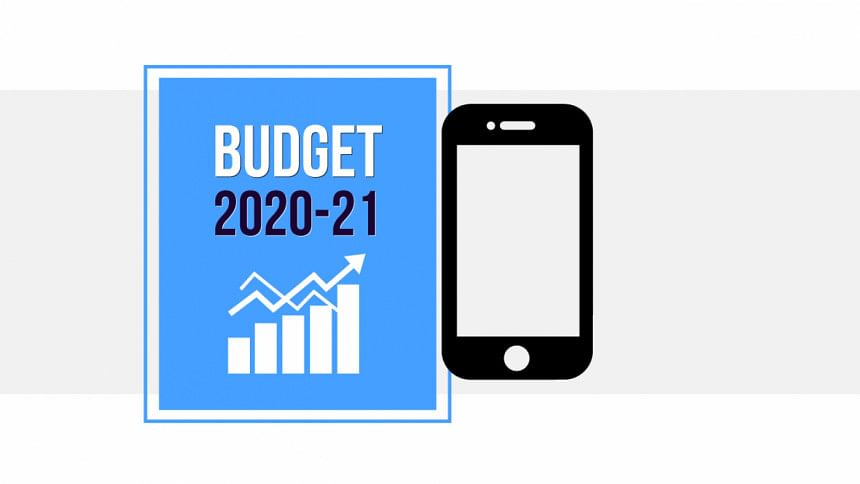Telecom—the next golden goose?

On a sunny November afternoon in 1997, a ringtone buzzed while I was riding a rickshaw together with a friend. I watched him in awe as he received the call from his handset. It was the first time I got so close to a mobile phone; once my friend ended the call, I asked him if I could have a look at it. Mobile phone was still a rarity those days. Fast forward to 2020, the scenario has completely changed. As you walk down the streets today, you often notice even young children armed with a phone in their hands.
In Bangladesh, telecom was out of reach for the common people until the early last decade. The state-owned BTTB had a complete monopoly over mobile phone services. Besides the mismanagement by the operator, the high cost of wired infrastructure, coupled with the lower purchasing power of consumers, caused the masses to remain grossly underserved. But as GSM operators debuted in the mid 90's and competition emerged, the scenario changed in the next decade, leading to the vast majority of citizens having a mobile phone of their own.
Although mobile tariff dropped from CDMA operator to GSM, the technology remained beyond the reach of common people until 2005. Over time, price affordability came through, attaining an equilibrium between the demand and supply sides. Mobile penetration then began to eclipse that of the landline. Nowadays, people refer to the mobile telecom industry as the telecom, almost ignoring the existence of landlines.
Experts suggest that there is a causal connection between the continuous development of telecom and economic growth. In modern days, telecom not only has a significant impact over an economy in terms of GDP but also serves the people by creating employments, empowering women and the underprivileged groups. In Bangladesh, the story is no different. Mobile communication has a significant economic impact considering the aggregation of the supply side, demand side and intangible benefits. The direct GDP contribution from this industry was USD 3.8 billion at the end of 2019 which was expected to grow to USD 5.08 billion within the next five years, according to a USAID study. Besides, it employs over 760,000 people today with job growth estimated at a rate of 9 percent during 2016-2020.
However, the recent proposed budget of the country called for hiking supplementary duty on mobile services by another 5 percent, followed by last year's 5 percent jump. This duty was 3 percent when introduced in FY 2015-16 and increased to 5 percent in FY 2016-17. The users also have to pay 15 percent VAT, 1.0 percent surcharge on voice and messaging, and 5 percent VAT on internet services.
It is not surprising that the government would find sources for additional revenue to realise its lofty goal of 8.2 percent GDP growth in the next fiscal year. The telecom and tobacco industries seemingly became the easy targets to meet the shortfalls. It is understandable that smokers would be a prime target but why target mobile phone users? It is a dilemma for a sector offering a lifeline to the homebound people during the pandemic, besides serving as a backbone of the country's digitalisation and progress. Telecom is already being forced to pay corporate taxes as high as that of the "health hazardous" tobacco industry. As of now, the government claws back Tk 51-56 from each Tk 100 revenue generated from this sector. Beside the extremely high taxes, the average revenue per user for a mobile operator is only about Tk 140, which is the lowest among our neighbouring countries, with a year-on-year decline of 6.9 percent.
According to a local newspaper, the chairman of the nation's revenue authority suggested that the additional rate wouldn't impact the users as the call tariffs are very low. The fact is, affordability is still a barrier afflicting mobile services in Bangladesh as correctly identified by GSMA, an organisation representing the interests of the mobile network operators (MNOs) worldwide. At a time when the nation is rapidly moving to become a data-driven economy, a medium consumption basket (1GB of data) costs an individual in the bottom 20 percent of the income distribution around 11.4 percent of their monthly income, which is significantly above the long-term affordability target set by the UN. This somewhat explains the relatively slow adoption of 3G or 4G technology in Bangladesh.
According to the nation's regulatory body, BTRC, Bangladesh at present has over 165 million mobile subscribers, of whom 93.5 million are mobile internet users. The questions that come to mind are if the volumes of data and calls are enough for the MNOs to meet their revenue targets, and whether the mass population can afford the mobile services to perform their social and business activities without significantly burdening their cost of living.
Also, the basis of taxation is found in the reciprocal duties of protection and support between the state and its citizens. In exchange for their contribution, the taxpayers receive general advantages and protection from the government. This implies that the government should collect taxes from those who are supposed to pay, while all citizens enjoy the privileges and protection irrespective of their ability to pay taxes. The never-ending hike in taxes and duties on telecom is not only challenging these fundamental tenets but also acting against public interests. In a country of over 160 million people with continued GDP growth, the number of taxpayers (around 2.2 million) is extremely low. This demands an urgent attention to growing the tax base instead of milking the telecom sector repeatedly.
So far, the quality of services of the telecom industry is not up to international standards. The sector's combined investment fell 19 percent year-on-year in 2019. The projected surge in demand and a reluctance to invest are contributing to consumers becoming the victims of substandard services. Given the situation, it is imperative that public policies should be focused on driving investments to improve telecom infrastructure in terms of quality of services and network coverage. We cannot expect the MNOs to continue investing when their return on investment is significantly low, mostly due to the overall market condition, unfavourable taxation or regulatory policies. High taxation or spectrum pricing may continue to be impediments against the dream of establishing a Digital Bangladesh, including the rolling out of 5G services as per the vision of our government.
Instead of hiking, taxes and duties on telecom should be rather lowered to boost mobile connectivity to lead higher productivity across the economy, and consequently higher GDP growth. This would help in meeting the nation's growth forecast, not the other way around. A sector contributing to the betterment of people's lives must be supported to sustain and thrive. It shouldn't be the next golden goose in the making.
Dr Sabbir Ahmad is a director (engineering) at edotco Group. The views expressed in this article are his own. Email: [email protected]

 For all latest news, follow The Daily Star's Google News channel.
For all latest news, follow The Daily Star's Google News channel. 



Comments